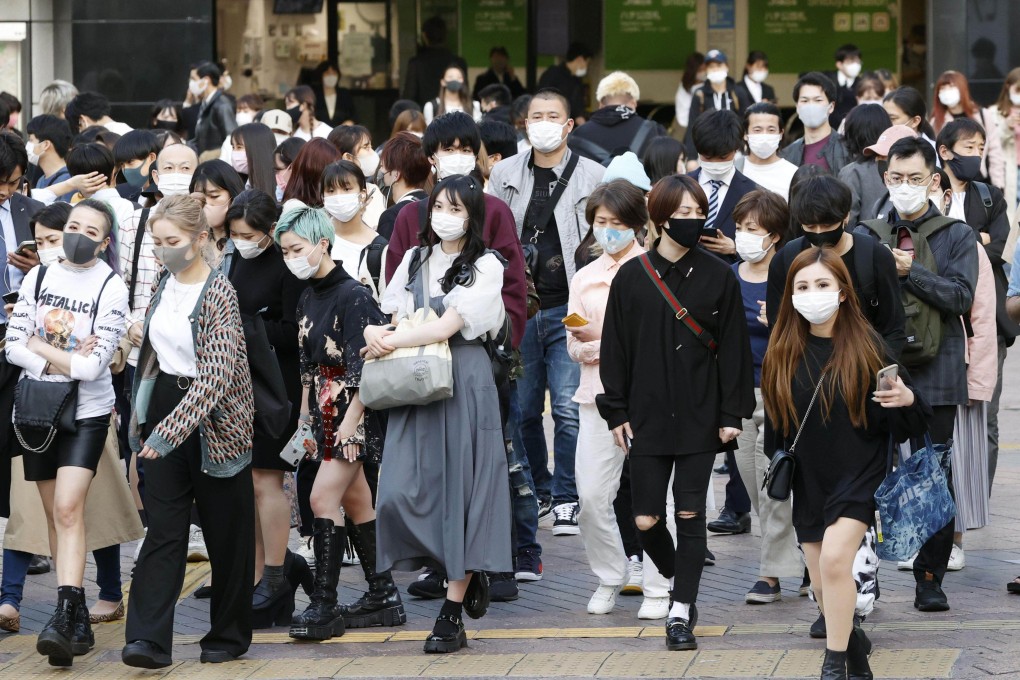Japan battles coronavirus mutations, slow vaccination rate as it gears up for Tokyo Olympics
- The Tokyo and Osaka governors want a state of emergency to contain the fourth wave, with most cases being the UK variant, although others have been identified
- Japan has only vaccinated 1.2 million people, or 1 per cent of its population, meaning it will not achieve herd immunity before the Olympic Games start on July 23

“I’m not a nervous sort of person, but I have to say that the news about these new strains of the virus is worrying,” said Tomura. “If you had told me we would be in this situation a year ago, I would not have believed you,” she said. “I thought we would have found a cure, that everyone would have been vaccinated. I can’t believe that things are even worse in Japan now.”
Like many Japanese, Tomura is casting an envious eye at countries such as Israel and Britain which have achieved high inoculation rates.
“I know Japan has a much bigger population than those countries, but why are so few Japanese people receiving their vaccinations? Why have we been unable to do that?”
Japan started administering vaccines in mid-February, prioritising those working in health care and emergency services. To date, 1.2 million people have received at least one dose of the Pfizer/BioNTech jab. This equates to about 1 per cent of the 126 million residents of Japan, compared to nearly 60 per cent of Israelis and 62.5 per cent in the UK.
The inoculations, which are free, were extended to the over-65s from April 12, and will be rolled out to more groups as supplies become available.